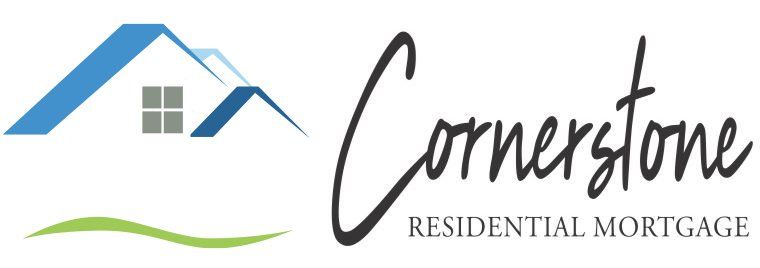Moving After Retirement? 5 Reasons to Jumpstart That Mortgage Now
- By Admin
- •
- 20 Apr, 2021

Do you want to move to a sunnier or more scenic location when you retire? While some future retirees will have the funds to buy that retirement property outright with cash reserves, most Americans need to finance their homes instead.
So should you take the step of buying and financing your retirement plan now rather than wait? Here are a few situations in which it may make more sense to start the process now.
1. You Have Plenty of Equity in Your House
Has your primary home appreciated since you bought it? Many people who bought a family home to raise their kids find that the property has a lot of untapped potential for credit as they approach retirement.
A simple cash-out refinance loan could allow you to access tens of thousands of dollars or even hundreds of thousands of dollars - usually to be used for whatever you wish. Funding a retirement house with that equity is often easier
than trying to obtain a second mortgage and may have a lower interest rate.
2. You Can Rent Out the Second Home
Buying a home you're not ready to live in full-time can bring its own income opportunities. Many people in your position rent out the second home either full- or part-time. The rental income often pays some or all of the house's expenses
while you wait to live in it down the road.
You can get a loan for a rental property through two means. Mortgages for full-time rentals are considered investment property loans and call for higher down payments and better credit scores. But if you live in the home on occasion -
typically at least 14 days of the year - you may qualify for a conventional second home loan similar to a first home loan.
3. You Have Sufficient Income to Qualify
The best time to seek out a large loan commitment like a mortgage is when your financial situation is at its best. And that usually means the top-earning years of your career. Qualifying for a mortgage when things are at their best means
qualifying for a larger amount, a lower down payment, and a better interest rate. If you wait until you retire, you may end up with less favorable terms and less disposable income.
4. You Want to Work Out the Kinks
If you start working on your retirement plan now, you have time to make sure it's a workable arrangement when you pull the trigger on retirement. You'll get to know the area and its quirks. You will know the home you've bought and
possibly even made it your own through improvements over time. And you know the cost of keeping up the home you will be living in after retirement.
5. Your Retirement Plan Doesn't Include a Mortgage
Saving for retirement is a challenge for most people, but adding a mortgage to it may be nearly impossible. If your retirement plans can't afford to include a mortgage, you have two possible solutions. The first is to boost savings to a
point where monthly income could accommodate a future mortgage, which may or may not be possible.
The other choice is to accelerate the real estate purchase now and get it out of the way before you lose any income. Conventional mortgages offer a variety of term lengths - commonly ranging from 10 to 40 years - so you can target a
payoff date.
Where to Start
Could your future plans benefit from getting a jump on the mortgage for your dream retirement house? If so, start by learning more about mortgage qualification for a second home, an investment property, and your income range or
credit score. The finance pros at Cornerstone Residential Mortgage can help. Call today to get your questions answered by our experienced team.
So should you take the step of buying and financing your retirement plan now rather than wait? Here are a few situations in which it may make more sense to start the process now.
1. You Have Plenty of Equity in Your House
Has your primary home appreciated since you bought it? Many people who bought a family home to raise their kids find that the property has a lot of untapped potential for credit as they approach retirement.
A simple cash-out refinance loan could allow you to access tens of thousands of dollars or even hundreds of thousands of dollars - usually to be used for whatever you wish. Funding a retirement house with that equity is often easier
than trying to obtain a second mortgage and may have a lower interest rate.
2. You Can Rent Out the Second Home
Buying a home you're not ready to live in full-time can bring its own income opportunities. Many people in your position rent out the second home either full- or part-time. The rental income often pays some or all of the house's expenses
while you wait to live in it down the road.
You can get a loan for a rental property through two means. Mortgages for full-time rentals are considered investment property loans and call for higher down payments and better credit scores. But if you live in the home on occasion -
typically at least 14 days of the year - you may qualify for a conventional second home loan similar to a first home loan.
3. You Have Sufficient Income to Qualify
The best time to seek out a large loan commitment like a mortgage is when your financial situation is at its best. And that usually means the top-earning years of your career. Qualifying for a mortgage when things are at their best means
qualifying for a larger amount, a lower down payment, and a better interest rate. If you wait until you retire, you may end up with less favorable terms and less disposable income.
4. You Want to Work Out the Kinks
If you start working on your retirement plan now, you have time to make sure it's a workable arrangement when you pull the trigger on retirement. You'll get to know the area and its quirks. You will know the home you've bought and
possibly even made it your own through improvements over time. And you know the cost of keeping up the home you will be living in after retirement.
5. Your Retirement Plan Doesn't Include a Mortgage
Saving for retirement is a challenge for most people, but adding a mortgage to it may be nearly impossible. If your retirement plans can't afford to include a mortgage, you have two possible solutions. The first is to boost savings to a
point where monthly income could accommodate a future mortgage, which may or may not be possible.
The other choice is to accelerate the real estate purchase now and get it out of the way before you lose any income. Conventional mortgages offer a variety of term lengths - commonly ranging from 10 to 40 years - so you can target a
payoff date.
Where to Start
Could your future plans benefit from getting a jump on the mortgage for your dream retirement house? If so, start by learning more about mortgage qualification for a second home, an investment property, and your income range or
credit score. The finance pros at Cornerstone Residential Mortgage can help. Call today to get your questions answered by our experienced team.



